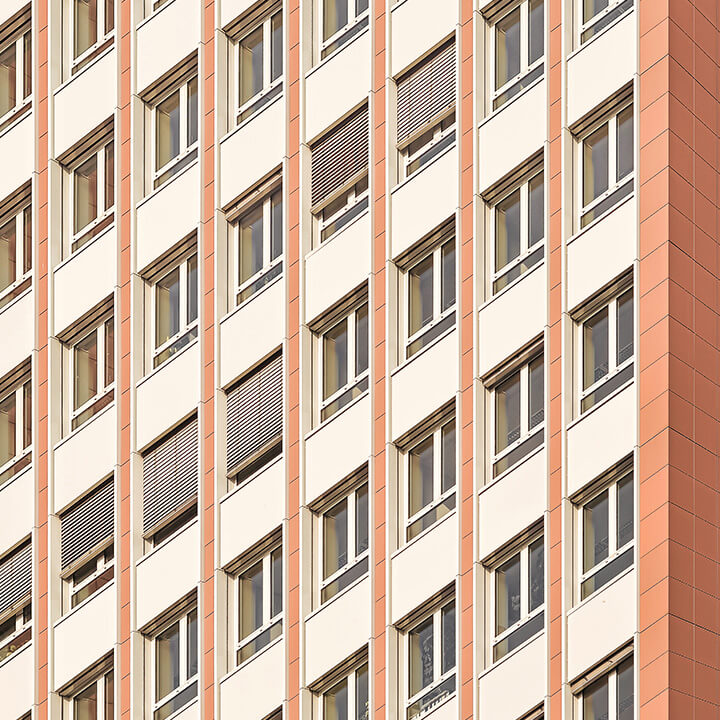Hippersley Point and the Building Safety Act: Implications for landlords and long-leaseholders
1st December 2023
The Topline
“The implications of the Building Safety Act 2022 are significant for residential landlords and long leaseholders alike. Guidance from the courts on how the legislation is to be interpreted in practice is now emerging. The Hippersley Point decision has both landlord-friendly and leaseholder-friendly aspects, so it makes essential reading for anyone concerned with residential block management.”
– Karl Anders, Partner, Housing Management & Litigation


Visit our BSA hub for an overview of the Building Safety Act 2022 (BSA 2022).
What are the key block management takeaways from the recent Hippersley Point/building safety decision?
The Hippersley Point case [1] concerned the costs of a landlord’s application for a dispensation from the statutory requirement to consult with leaseholders in respect of necessary building safety works, and leaseholder protections in the BSA 2022. The decision is an appeal in the Upper Tribunal (UT) and is the first appeal relating to the provisions of the BSA 2022. (The facts of the case are set out below). Key legal and practical takeaways arising from the Upper Tribunal’s judgment include:
- There is no general principle that a landlord should bear its own costs of a dispensation application.
- A landlord may not always be seeking an ‘indulgence’ when requesting a dispensation from the statutory requirement to consult with leaseholders – for example, building safety works may be urgently required.
- Paragraph 9 of Schedule 8 to the BSA 2022 protects qualifying leaseholders against liability to pay professional costs incurred by a landlord relating to the liability or potential liability of any person as a result of a relevant building safety defect. That leaseholder protection is to be construed widely.
- Paragraph 9 can therefore operate to prevent a landlord from recovering the costs of a dispensation application concerning works associated with or arising from a relevant building safety defect via the service charge.
- Schedule 8 of the BSA 2022 came into effect on 28 June 2022. Whilst it is not retrospective, it applies to all service charge costs falling within one of the protected categories of expenditure in Schedule 8 (including paragraph 9), even where the sums had been incurred prior to, and had been demanded and become payable prior to, that date. Therefore, all service charges relating to relevant costs caught by the leaseholder protections in Schedule 8 cease to be payable from 28 June 2022.
- An anomalous consequence is that it appears paragraph 9 will benefit ‘tardy’ qualifying leaseholders who had not paid service charge covering dispensation applications or other costs incurred as a result of a relevant building safety defect by 28 June 2022.
- However, it appears diligent leaseholders who had made any such payment before 28 June 2022, are not entitled to a refund of those sums.
- It also appears landlords who failed to obtain payment of service charge demands issued before 28th June 2022, in relation to costs protected by schedule 8, will now be prevented from recovering those costs. However, landlords who recovered those service charges demanded before 28th June 2022, may therefore have obtained an advantage here.
What happened in Hippersley Point?
The landlord was the freehold owner of a higher risk building which required cladding remediation and other fire safety works. The landlord applied to the First-Tier Tribunal (FTT) for a dispensation from the requirement, under section 20 of the Landlord and Tenant Act 1985, to consult with leaseholders in respect of the works. The FTT granted the dispensation but imposed a condition that the landlord would not be able to recover its costs of the application from the leaseholders via the service charge. The landlord appealed that conditionality to the UT.
The UT found that the FTT had erred in imposing the condition. It explained that the FTT has discretion to impose a costs condition if that would be appropriate in its nature and effect or, put another way, if it would not be reasonable to grant dispensation in the absence of such conditions. The UT also confirmed that there is no general principle that a landlord should bear its own costs of a dispensation application, and that it will be a matter for the FTT to consider whether, on the particular facts, the imposition of a costs condition is appropriate in its nature and effect.
The UT stated no prejudice would be suffered by the leaseholders in the circumstances. In fact, the landlord was applying for the dispensation to facilitate making the building safe as quickly as possible. It was therefore conceivable that, if any prejudice could be identified at all, that would flow from dispensation not being granted. The landlord was not, therefore, seeking any ‘indulgence’.
However, the UT also found that paragraph 9 of Schedule 8 of the BSA 2022 would nonetheless prevent the landlord recovering its costs from ‘qualifying leaseholders’ [2]. It held that the costs of a dispensation application relating to building safety work would be caught by the paragraph 9 leaseholder protection provisions. It also confirmed that the provision took effect from its ‘in force’ date of 28 June 2022, even where sums had been incurred prior to, and had been demanded and become payable prior to, that date.
The result was that the landlord’s appeal was successful on its face, but the landlord was nevertheless unable to recover its costs of the dispensation application from the Hippersley Point long leaseholders, in so far as they were qualifying leaseholders.
Block management and building safety: How we can support you
The confirmation from the UT in Hippersley Point that there is no general principle that a landlord should bear its own costs of a dispensation application will be helpful for landlords in respect of applications that are not concerned with service charge costs falling within one of the protected categories of expenditure in Schedule 8 to the BSA 2022. So, too, will be the UT’s clarity concerning the Tribunals’ discretion to impose costs conditions (the ‘nature and effect’ test).
Qualifying long-leaseholders will welcome that the protection afforded by paragraph 9 of Schedule 8 to the BSA 2022 is to be construed widely; and that the protection limits their liability to pay service charge costs falling within one of the protected categories of expenditure in Schedule 8, and also to some extent where sums fell due prior to 28 June 2022.
The BSA 2022 imposes sweeping changes across all aspects of the building industry. It directly impacts all stakeholders, including central and local government; Housing Associations; developers and housebuilders; freeholders, leaseholders and lenders; property management companies and block managers; and construction and real estate professionals. Walker Morris’ BSA experts have unparalleled experience acting for clients rights across the Living sector, and are therefore uniquely placed to offer informed, hands-on advice – tailored to the specific industry or professional perspective of each individual client.
For more information, or for tailored advice or training, on the Hippersley Point case, the BSA 2022 and/or block management more generally, please contact Karl, Pawan, Asia, or any of our BSA expert colleagues across the firm.
[1] Adriatic Land 5 Ltd v The Long Leaseholders of Hippersley Point [2023] UKUT 271 (LC)
[2] A leaseholder is a ‘qualifying leaseholder’ under the BSA 2022 if it has a long lease of a dwelling in a building above 11 metres or 5 storeys under which it is liable to pay service charge; and, on 14 February 2022, the property was the leaseholder’s main home, or the leaseholder owned no more than 3 UK residential properties in total





![An image of a block of flats, with a sunset behind it, going from yellow to rose pink. A visual metaphor for the topic of this article. URS Corporation Ltd V BDW Trading Ltd [2023]](https://www.walkermorris.co.uk/wp-content/uploads/2023/07/URS-Corporation-Ltd-V-BDW-Trading-Ltd-2023-720720.jpg)



